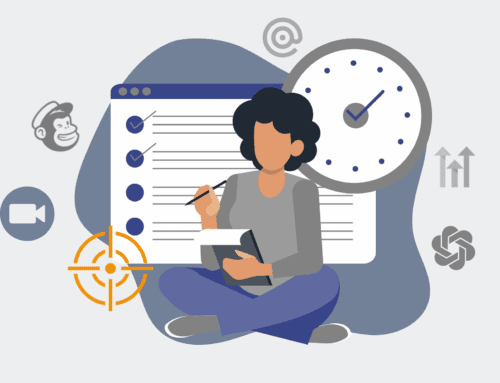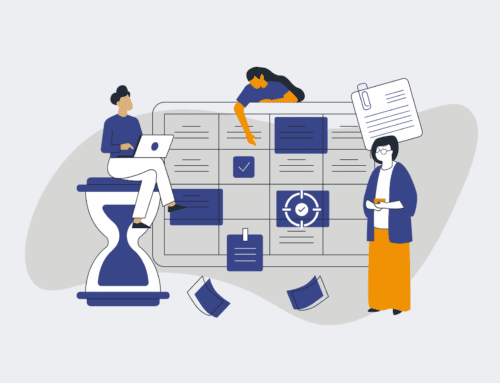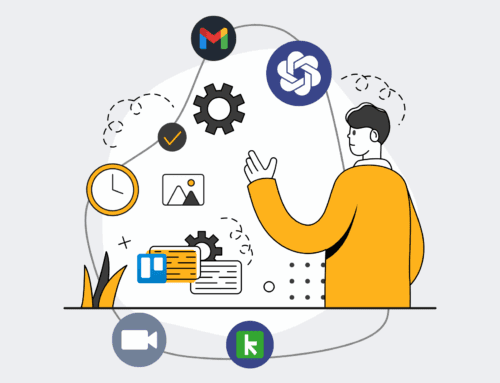9 Transformative Ways AI is Revolutionizing Interview Scheduling for Strategic Talent Acquisition
In today’s hyper-competitive talent landscape, the speed and efficiency of your hiring process can be the single greatest differentiator. Yet, many organizations remain trapped in the manual drudgery of interview scheduling—an administrative black hole that devours countless hours, frustrates candidates, and saps the productivity of high-value recruiters and hiring managers. It’s not just a bottleneck; it’s a strategic liability, costing companies talent, time, and money.
At 4Spot Consulting, we’ve seen firsthand how these inefficiencies compound, preventing businesses from reaching their full potential. The traditional approach, often involving endless email chains, calendar juggling, and phone tag, is not only tedious but prone to human error. It extends time-to-hire, leading top candidates to accept offers elsewhere, and diverts valuable human capital from more strategic initiatives. Imagine your team saving 25% of their day, every day, by eliminating these low-value tasks. This isn’t a dream; it’s a tangible outcome achievable through intelligent automation.
The solution isn’t to simply work harder but to work smarter. AI-powered interview scheduling is no longer a futuristic concept; it’s a proven technology delivering real-world ROI. It’s about leveraging advanced algorithms and machine learning to manage the complex dance of matching candidate availability with interviewer schedules, optimizing for speed, preference, and efficiency. This isn’t just about calendar invites; it’s about reclaiming strategic time, elevating the candidate experience, and ensuring your talent acquisition engine runs at peak performance. For business leaders focused on outcomes and scalability, understanding these transformative applications is critical to staying ahead.
1. Automating Candidate Availability Collection and Management
One of the most time-consuming aspects of interview scheduling is the back-and-forth communication required to ascertain candidate availability. Recruiters often send multiple emails, propose specific times, and then wait for responses, often leading to a cascade of further negotiations. AI-powered scheduling tools eliminate this bottleneck by intelligently automating the entire process. Candidates receive a personalized link to a dynamic scheduling interface that integrates directly with the hiring team’s calendars. The AI presents only truly available slots, considering time zones, existing meetings, and even buffer times between interviews. This not only significantly reduces the administrative burden on recruiters but also empowers candidates to choose a time that genuinely works for them, increasing their engagement and satisfaction. This automation cuts down on human error and provides a seamless, professional experience from the very first touchpoint, aligning perfectly with our goal of saving high-value employees from low-value work.
2. Optimizing Interviewer Schedules and Capacity
Managing the calendars of multiple interviewers, often across different departments, time zones, and with varying levels of availability and roles, is a logistical nightmare. AI-driven scheduling platforms excel here by not just finding a slot, but by optimizing the entire interview panel’s schedule. The AI can factor in preferred interviewers for specific roles, balance workloads to prevent interviewer burnout, and ensure that critical decision-makers are available when needed. For instance, it can prioritize interviewers who haven’t conducted an interview in a while or ensure that a diverse panel of interviewers is assigned to promote fairness. This intelligent optimization goes beyond simple availability; it’s about strategic resource allocation. By leveraging Make.com, we can integrate these AI tools with existing CRM and ATS systems like Keap, ensuring a holistic view of interviewer capacity and enabling truly intelligent, automated assignment logic that respects employee time and company goals.
3. Drastically Reducing Time-to-Hire Metrics
The faster you can move a qualified candidate through your interview pipeline, the higher your chances of securing that talent before a competitor does. Manual scheduling often adds days, if not weeks, to the hiring process, especially for senior or in-demand roles where multiple stakeholders are involved. AI-powered scheduling slashes this time dramatically. By instantly identifying and presenting viable interview slots, and automatically sending confirmations and reminders, the time between application and first interview, and subsequently between interview rounds, is compressed. This efficiency isn’t just about speed; it’s about competitive advantage. When an HR firm we worked with automated their resume intake and parsing using AI, it directly translated to faster interview setups and an overall reduction in their time-to-hire by almost 30%. This demonstrates a clear ROI on strategic automation initiatives that directly impacts business outcomes.
4. Enhancing the Overall Candidate Experience
In today’s talent market, the candidate experience is paramount to your employer brand. A clunky, slow, or disorganized scheduling process can leave a lasting negative impression, regardless of the quality of the role or the company culture. AI-powered scheduling platforms provide a smooth, professional, and candidate-centric experience. Candidates receive clear communications, have control over choosing their interview times, and get automated reminders, reducing no-shows and improving their perception of the organization. This thoughtful approach extends your brand’s professionalism beyond the interview itself, fostering goodwill and making your company a more attractive employer. A streamlined process is a signal that your organization values efficiency and respects individual time, which are key elements for attracting top-tier talent. It reflects a modern, forward-thinking company that aligns with our philosophy of intelligent business operations.
5. Minimizing Scheduling Conflicts and Reschedules
Human error is an inevitable part of any manual process. Double-bookings, forgotten meetings, or incorrectly noted availabilities are common pitfalls in traditional interview scheduling, leading to last-minute reschedules that inconvenience everyone involved. AI-powered systems virtually eliminate these issues. By directly integrating with calendars (like Google Calendar or Outlook 365) and having real-time visibility into availability, the AI ensures that all proposed slots are genuinely open and conflict-free. Furthermore, robust systems can handle complex scenarios, such as ensuring a specific room is available or that sequential interviews for a candidate are appropriately spaced. This level of precision reduces the frustration of constant rescheduling for both candidates and internal teams, preventing wasted time and maintaining a professional appearance. This reliability is a cornerstone of operational excellence, a key benefit 4Spot Consulting delivers through our OpsMesh™ framework.
6. Seamless Integration with Existing ATS and HRIS Systems
The true power of AI-powered interview scheduling is unleashed when it’s not a standalone tool but an integrated component of your broader HR tech stack. Modern AI scheduling platforms are designed to seamlessly integrate with Applicant Tracking Systems (ATS) like Workday or Greenhouse, and Human Resources Information Systems (HRIS). This integration means that candidate data, job requisitions, and interviewer details are automatically synchronized, eliminating manual data entry and ensuring data consistency across platforms. For instance, when a candidate moves to the interview stage in your ATS, the AI scheduler can automatically trigger the scheduling process. Post-interview, feedback forms can be linked, and status updates pushed back to the ATS. This creates a unified “single source of truth” for candidate data, a critical element in our OpsMesh™ strategy, reducing errors and ensuring that recruiters and hiring managers always have the most up-to-date information at their fingertips. This level of connectivity is what enables true end-to-end automation.
7. Improving Interviewer Efficiency and Focus
Recruiters and hiring managers are high-value employees whose time is best spent on strategic activities such as candidate engagement, assessment, and talent strategy, rather than administrative tasks. The constant interruption of scheduling coordination fragments their day, reduces focus, and ultimately impacts their productivity. By offloading the entire scheduling burden to AI, interviewers gain back significant blocks of time. They simply update their calendar, and the AI handles the rest. This allows them to concentrate on preparing for interviews, conducting thorough evaluations, and providing timely feedback, rather than chasing availability. The shift from reactive scheduling to proactive, strategic engagement is a significant return on investment. It’s about enabling your best people to do their best work, directly addressing the core problem of low-value work consuming high-value employee time, which is exactly what 4Spot Consulting aims to solve for our clients.
8. Leveraging Data Analytics for Process Optimization
One of the often-overlooked benefits of AI-powered scheduling is the wealth of data it generates. These systems can track key metrics such as average time-to-schedule, interviewer utilization rates, candidate no-show rates, preferred interview slots, and even the efficiency of different interview panels. This data provides invaluable insights into your recruitment process, allowing HR leaders to identify bottlenecks, optimize resource allocation, and continuously refine their talent acquisition strategy. For example, if the data reveals that certain interviewers consistently have low utilization, their availability parameters might need adjustment. If no-show rates are high for specific time slots, adjustments to reminder cadences or alternative time offerings can be made. This data-driven approach moves HR from reactive problem-solving to proactive, strategic optimization, turning interview scheduling into a quantifiable, improvable process rather than just a necessary evil. Our OpsMap™ diagnostic is designed to uncover exactly these types of opportunities for data-driven improvement.
9. Scaling Recruitment Operations with Ease
As businesses grow and hiring needs intensify, the complexities of manual interview scheduling can quickly become overwhelming, hindering scalability. A sudden surge in hiring volume or opening new offices in different time zones can cripple a manually managed scheduling process. AI-powered interview scheduling provides an elastic, scalable solution. It can handle a significantly higher volume of interviews without increasing administrative headcount or causing undue stress on existing teams. The system automatically adjusts to increased demand, ensuring that scheduling remains efficient regardless of the scale. This capability is crucial for high-growth B2B companies looking to expand rapidly without sacrificing operational excellence. It allows HR and recruiting teams to focus on attracting and onboarding top talent, knowing that the foundational administrative processes are robust and automated. This aligns perfectly with 4Spot Consulting’s mission to enable businesses to scale by eliminating bottlenecks and leveraging automation and AI.
The era of manual, error-prone interview scheduling is rapidly fading. For HR and recruiting professionals, embracing AI-powered solutions isn’t just about adopting new technology; it’s about fundamentally rethinking how talent acquisition operates. By automating the mundane, optimizing resources, and enhancing the candidate experience, organizations can dramatically reduce time-to-hire, improve efficiency, and free up their high-value talent to focus on strategic growth initiatives. The benefits extend far beyond simple calendar management, impacting your employer brand, operational costs, and ultimately, your ability to secure the talent necessary for competitive advantage. If your business leaders value outcomes, scalability, and reducing human error, now is the time to explore how intelligent automation can transform your recruitment pipeline.
If you would like to read more, we recommend this article: Mastering AI-Powered Interview Scheduling for Strategic Talent Acquisition









